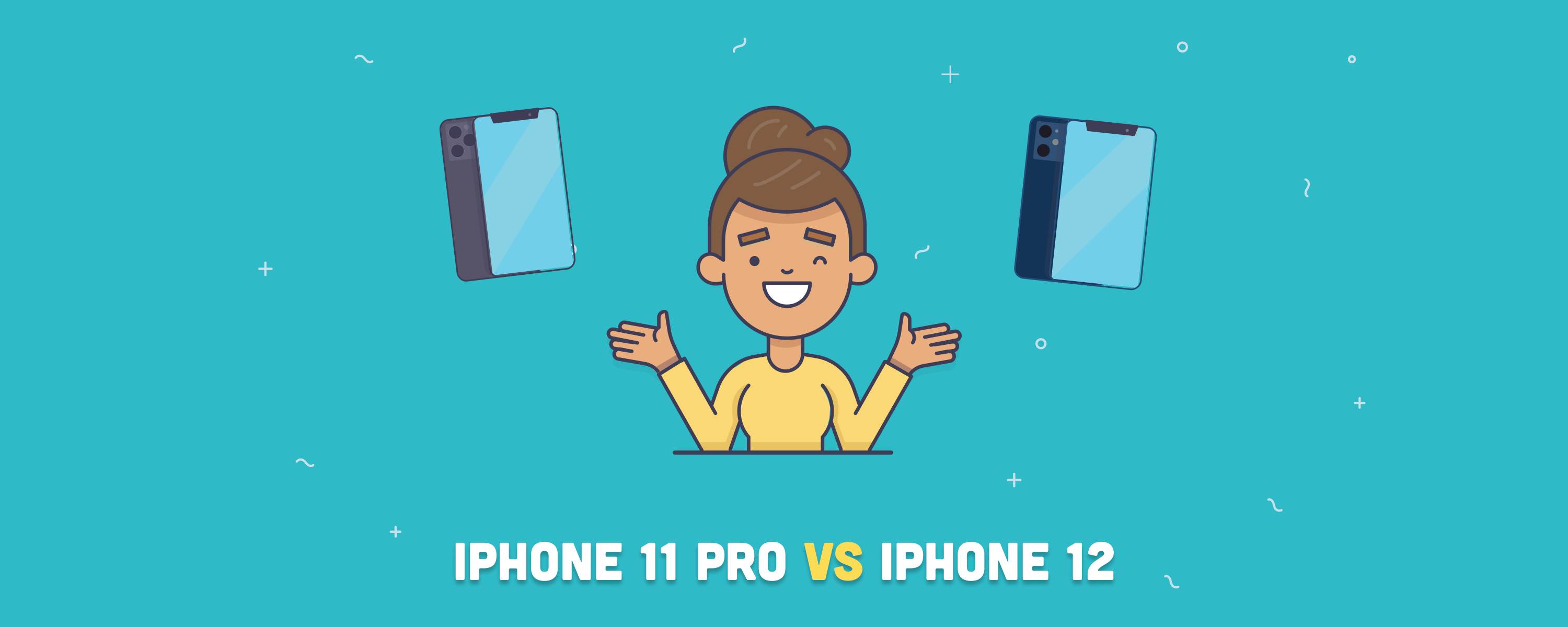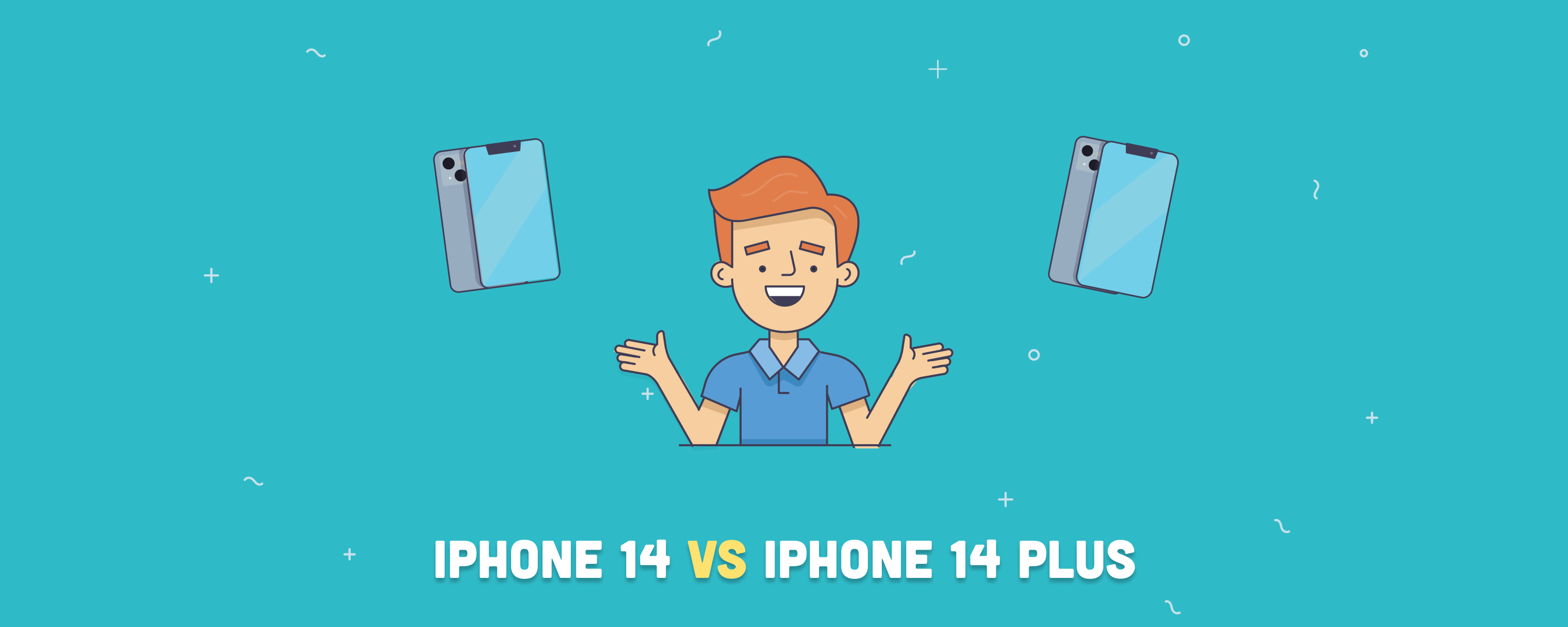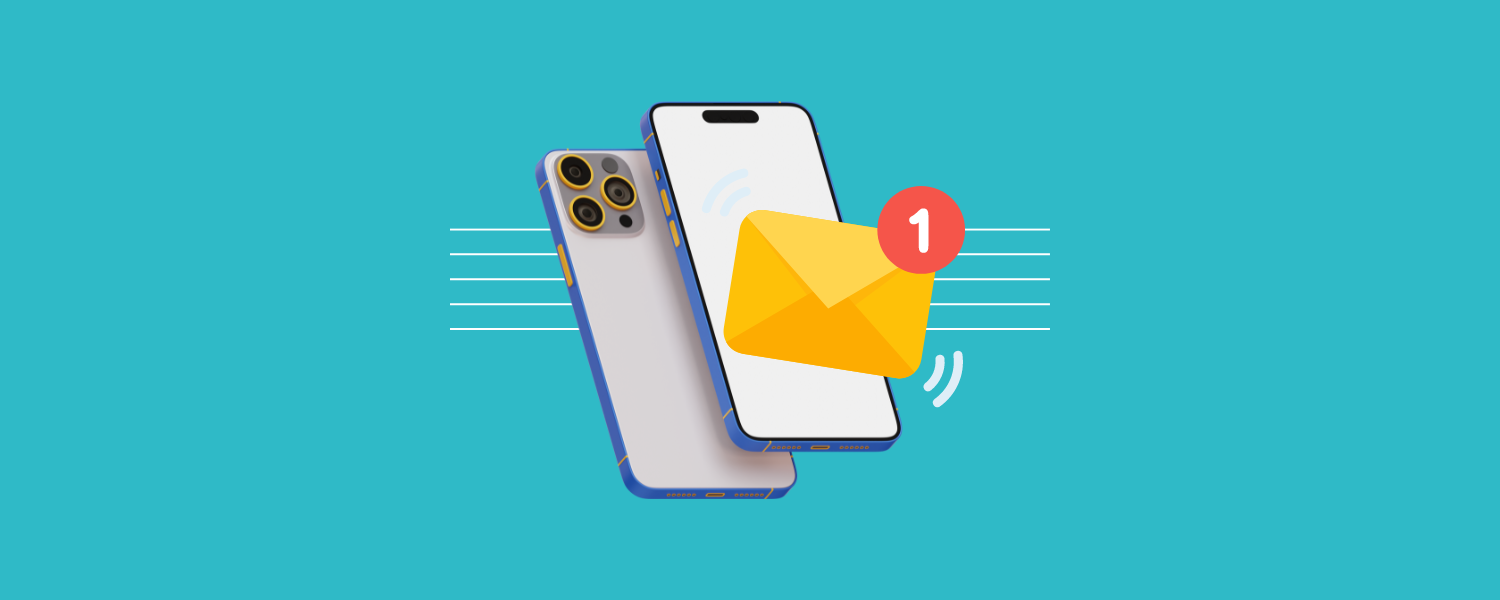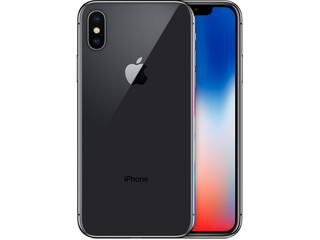The iPhone 11 Pro and the iPhone 12 might have launched relatively close together, but don’t be fooled by their proximity on the calendar. These two smartphones represent distinct generations of Apple’s technology, and their differences can be surprisingly substantial. In this article, we’ll break down the nuances of each phone, from design and display to camera capabilities and performance, to help you determine which iPhone is the perfect fit for your needs.
Table of contents
| Feature | iPhone 11 Pro | iPhone 12 |
|---|---|---|
| Release date | September 20, 2019 | October 23, 2020 |
| Body dimensions | 144 x 71.4 x 8.1 mm 5.67 x 2.81 x 0.32 inches | 146.7 x 71.5 x 7.4 mm 5.78 x 2.81 x 0.29 inches |
| Weight | 188 g 6.63 ounces | 164 g 5.78 ounces |
| Build | Stainless steel frame, glass front/back | Aluminum frame, glass front/back |
| Display size | 5.8 inches | 6.1 inches |
| Display type | Super Retina XDR OLED | Super Retina XDR OLED |
| Resolution | 2436×1125 pixels at 458 ppi | 2532×1170 pixels at 460 ppi |
| Brightness | 800 nits (typical), 1200 nits (peak) | 625 nits (typical), 1200 nits (peak) |
| Processor | Apple A13 Bionic | Apple A14 Bionic |
| RAM | 4GB | 4GB |
| Storage options | 64GB, 256GB, 512GB | 64GB, 128GB, 256GB |
| Main camera | 12 MP wide, 12 MP ultrawide, 12 MP telephoto | 12 MP wide, 12 MP ultrawide |
| Front camera | 12 MP, f/2.2 | 12 MP, f/2.2 |
| Battery capacity | 3046 mAh | 2815 mAh |
| Battery life | Up to 18 hours of video playback | Up to 17 hours of video playback |
| Water resistance | IP68 (up to 4m for 30 mins) | IP68 (up to 6m for 30 mins) |
| 5G connectivity | No | Yes |
| Max OS compatibility | iOS 18 | iOS 18 |
| Original price | $999 (64GB), $1,149 (256GB), $1,349 (512GB) | $799 (64GB), $849 (128GB), $949 (256GB) |
| Price (refurbished) | Starting at | Starting at |
Reasons to choose the iPhone 11 Pro
- Stainless steel frame for a more premium feel.
- Better display brightness.
- A slightly larger battery capacity for potentially better battery life.
- Available in 512GB storage option for more storage needs.
- Telephoto lens for optical zoom.
Reasons to choose the iPhone 12
- A14 Bionic chip offers better performance and future-proofing.
- Larger display with higher resolution for a better viewing experience.
- The Ceramic Shield screen is four times more resistant to drops.
- Night mode is available on all cameras, including the front camera.
- Dolby Vision HDR video recording for superior video quality.
- MagSafe compatibility for accessories.
- 5G connectivity.
iPhone 11 Pro vs. iPhone 12: All the differences
Choosing between the iPhone 11 Pro and the iPhone 12 can be tricky, as both phones have good features and capabilities that can serve you well nowadays for quite a low price. To help you make an informed decision, let’s delve into the key distinctions that set them apart.
Design
The iPhone 11 Pro and iPhone 12 showcase distinct styles and build qualities, each appealing to different user preferences.
- Frame and materials: The iPhone 11 Pro features a stainless steel frame, providing a premium feel and added durability. In contrast, the iPhone 12 uses an aluminum frame, which is lighter and contributes to a lighter overall device weight. This results in the iPhone 12 weighing 5.78 ounces compared to the iPhone 11 Pro’s 6.63 ounces.
- Edges and form factor: One of the most noticeable differences is the design of the edges. The iPhone 11 Pro has rounded edges, making it comfortable to hold and giving it a classic iPhone look. The iPhone 12, however, features flat edges, reminiscent of the iPhone 5 design. This gives it a modern aesthetic and makes it easier for some users to grip and use one-handed.
- Durability: The iPhone 12 introduces the Ceramic Shield front cover, which Apple claims to be four times more resistant to drops compared to previous models. This significant improvement in screen protection makes the iPhone 12 more durable against accidental drops and impacts.
- Water resistance: Both models are IP68 certified, but the iPhone 12 offers better water resistance. It can be submerged up to 6 meters for 30 minutes, whereas the iPhone 11 Pro can withstand up to 4 meters for the same duration. This makes the iPhone 12 more resilient to water-related accidents.
- Dimensions: Despite having a larger screen, the iPhone 12 is only slightly larger in overall dimensions compared to the iPhone 11 Pro. The iPhone 12 measures 5.78 x 2.81 x 0.29 inches, while the iPhone 11 Pro measures 5.67 x 2.81 x 0.32 inches. This minimal size difference makes the iPhone 12 more compact and portable, even with its larger display.
- Aesthetic appeal: Many see the iPhone 12’s flat edges and improved durability as a significant design enhancement. Its sleek, modern look and lighter build make it attractive to users looking for a contemporary device. On the other hand, the stainless steel frame of the iPhone 11 Pro gives it a more classic, luxury feel that some users might prefer.
The iPhone 12 reflects a shift towards modernity and durability, while the iPhone 11 Pro maintains a premium, classic look with its rounded edges and stainless steel frame.
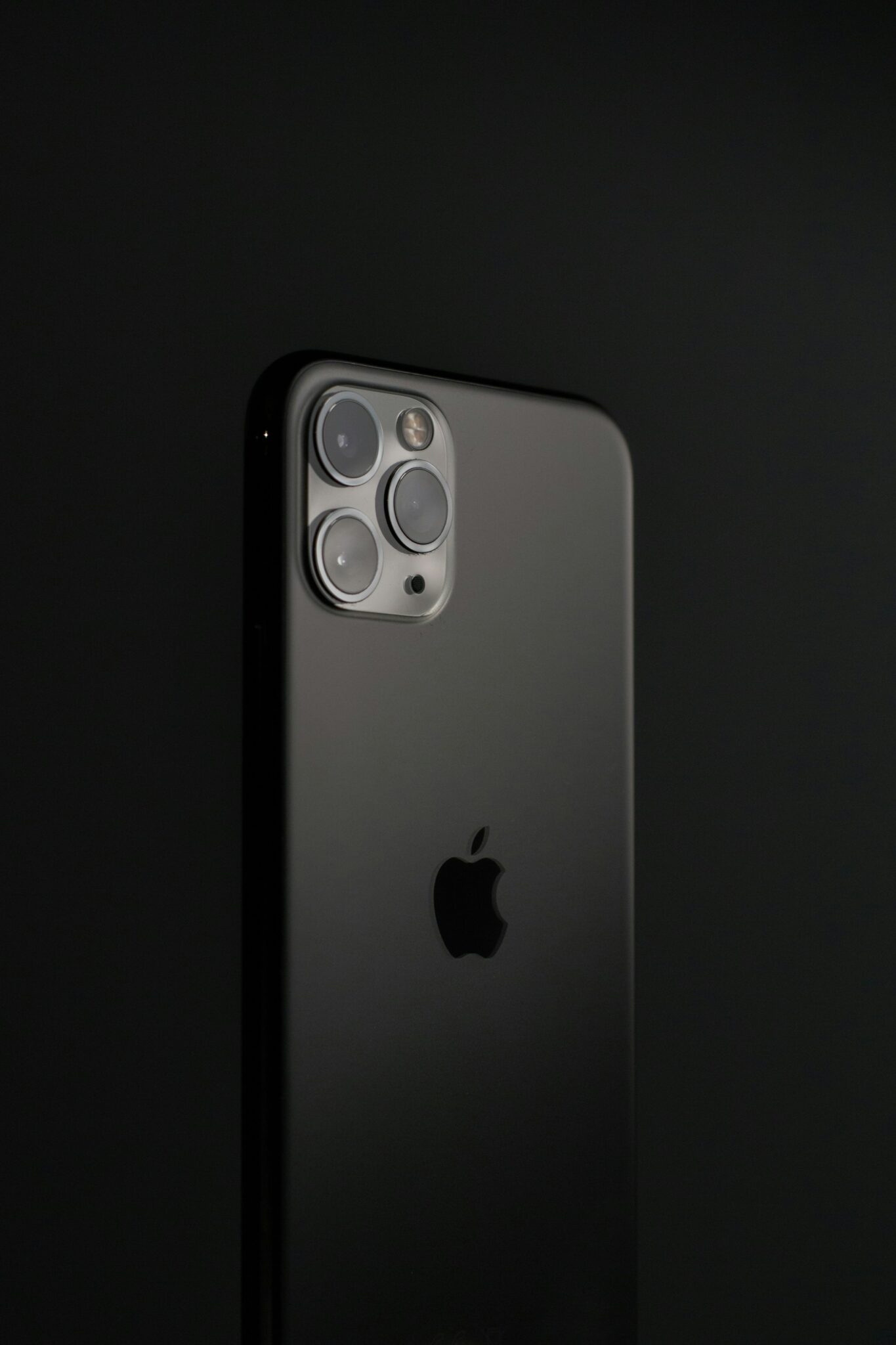
Display
Both models feature Apple’s Super Retina XDR OLED technology, providing bright, vibrant displays with HDR10 and Dolby Vision support. However, there are some key differences between the iPhone 11 Pro vs. the iPhone 12:
- Screen size and resolution: The iPhone 11 Pro has a 5.8-inch display with a resolution of 1125 x 2436 pixels, resulting in a pixel density of approximately 458 ppi. In contrast, the iPhone 12 has a larger 6.1-inch display with a higher resolution of 1170 x 2532 pixels, offering about 460 ppi. This makes the iPhone 12’s screen slightly sharper and more immersive.
- Brightness: The typical brightness for the iPhone 11 Pro is 800 nits, compared to the iPhone 12’s 625 nits. Both models peak at 1200 nits when viewing HDR content, ensuring excellent clarity in bright conditions.
- Technology: While both models use OLED technology, the iPhone 12 benefits from the new Ceramic Shield front cover, which Apple claims is four times more resistant to drops than previous models. This addition significantly enhances the durability of the iPhone 12’s display.
In summary, the iPhone 12 edges ahead with its larger, sharper screen and the enhanced durability offered by the Ceramic Shield.
👉 Discover more: 21 Best Classic and Old iPhone Games You Can Still Play
Performance
The iPhone 12 presents some advantages over its predecessor. Let’s review them.
- Processor: The iPhone 12 is powered by the A14 Bionic chip, which is a significant upgrade over the A13 Bionic chip found in the iPhone 11 Pro. The A14 chip is built on a 5-nanometer process, offering around a 20% improvement in CPU performance and a 10% boost in GPU performance compared to the A13. This makes the iPhone 12 more efficient and better equipped to handle demanding tasks and future software updates.
- RAM: Both models feature 4GB of RAM, which is sufficient for most tasks given iOS’s efficient memory management. However, the Pro models in the iPhone 12 series come with 6GB of RAM, enhancing multitasking capabilities and overall performance.
- Neural Engine: The A14 Bionic chip includes a 16-core Neural Engine, which offers an 80% increase in AI performance compared to the 8-core Neural Engine in the A13 Bionic chip. This improvement significantly enhances machine learning tasks, such as photo and video processing, augmented reality (AR) applications, and other AI-driven features and apps.
- 5G connectivity: One of the standout features of the iPhone 12 is its support for 5G connectivity. This allows for faster download and upload speeds, lower latency, and improved performance in areas with 5G coverage. The iPhone 11 Pro, on the other hand, is limited to 4G LTE, making the iPhone 12 a better choice for users who want to take advantage of the latest network technology.
- Storage options: Both models offer similar storage options, with 64GB, 128GB, and 256GB capacities. However, the iPhone 11 Pro also includes a 512GB option, providing more storage for users who need it. The base storage in the iPhone 12 starts at 64GB, which some users might find limiting compared to the higher base storage in newer models like the iPhone 12 Pro.
- Software and future-proofing: Both the iPhone 11 Pro and the iPhone 12 are compatible with iOS 18, ensuring they receive the latest features and security updates. However, the newer hardware in the iPhone 12 means it will likely receive support for a longer period, making it a more future-proof investment.
The iPhone 12 offers significant performance improvements over the iPhone 11 Pro, thanks to its A14 Bionic chip, enhanced AI capabilities, and 5G connectivity.
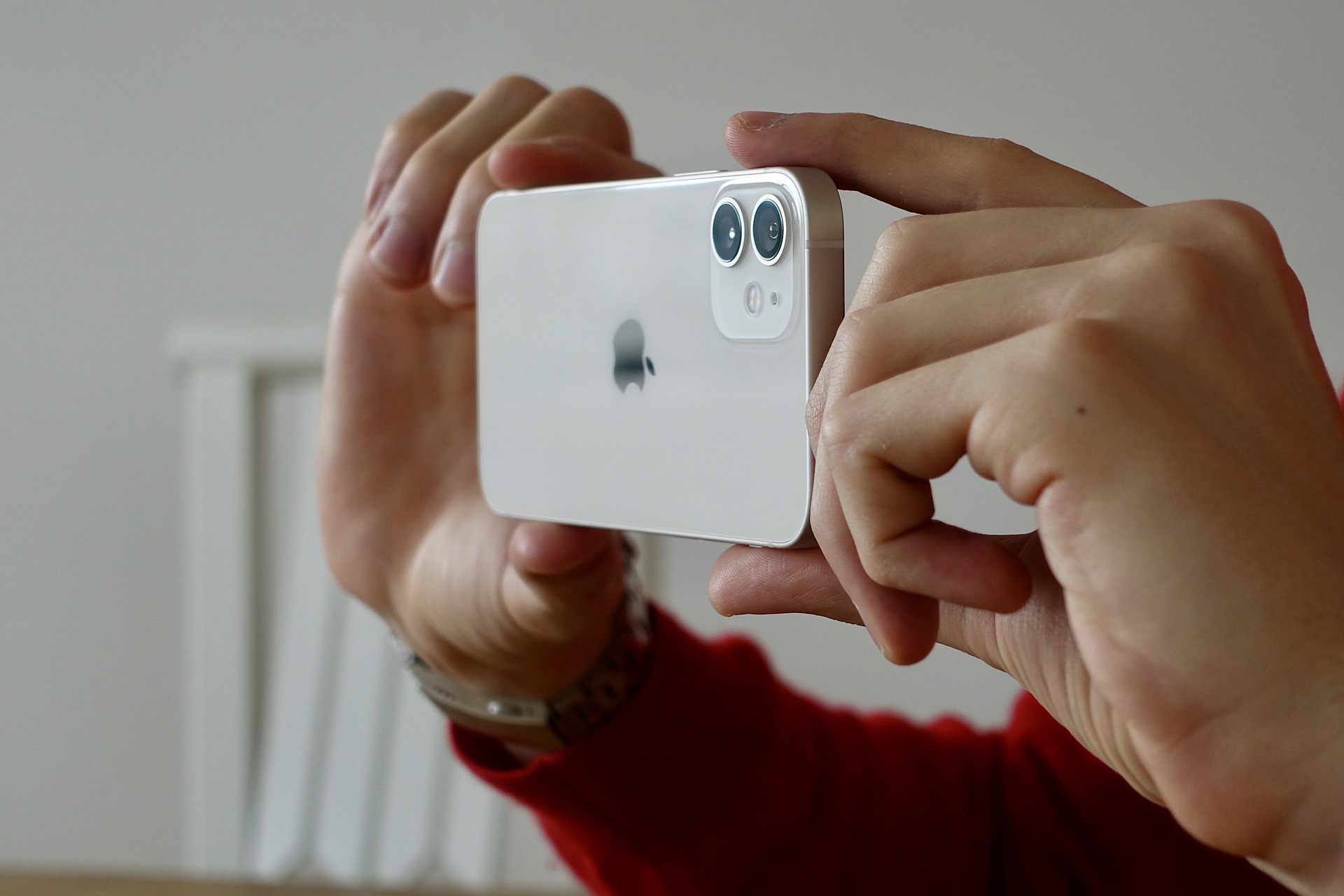
Camera
The camera systems on the iPhone 11 Pro and iPhone 12 both offer high-quality photography and videography capabilities, but there are some key differences and improvements in the iPhone 12 that make it stand out.
- Main camera: Both the iPhone 11 Pro and iPhone 12 have a 12MP primary camera. However, the iPhone 12 benefits from the A14 Bionic chip’s improved image processing, which enhances Smart HDR and Night mode features. This results in better photo quality, especially in low-light conditions, with brighter and sharper images.
- Ultra-wide and Night mode: The iPhone 12 supports Night mode on both the primary and ultra-wide lenses, allowing for better low-light photography across different perspectives. The iPhone 11 Pro lacks this capability on the ultra-wide lens, making it less versatile in low-light scenarios.
- Video capabilities: Both phones excel in video recording, but the iPhone 12 introduces HDR video recording with Dolby Vision at up to 30 fps. This provides a better dynamic range and more vivid colors in videos. However, the video must be viewed on a Dolby Vision-compatible display to fully appreciate this feature.
- Selfie camera: The front-facing camera on the iPhone 12 also supports Night mode, which results in brighter and clearer selfies in low-light conditions compared to the iPhone 11 Pro. This improvement makes the iPhone 12 a better choice for users who frequently take selfies in various lighting conditions.
Battery life and charging
Regarding practical usage, the iPhone 11 Pro tends to outlast the iPhone 12. During extensive battery life tests, the iPhone 11 Pro was found to last up to 10 hours when web browsing or streaming videos, compared to the iPhone 12’s 8 hours under similar activities. The iPhone 11 Pro is rated for 18 hours of video playback, while the iPhone 12 is rated for 17 hours.
Both models support fast charging but with slight differences. The iPhone 11 Pro supports 18W fast charging, while the iPhone 12 supports 20W fast charging. This means the iPhone 12 can charge slightly faster with the appropriate charger.
In addition, the iPhone 12 introduces MagSafe technology. MagSafe provides a more secure and efficient magnetic alignment for charging and supports a higher wireless charging speed of up to 15W compared to the iPhone 11 Pro’s 7.5W. Additionally, MagSafe enables a new ecosystem of magnetic accessories, enhancing the usability and convenience of the iPhone 12.
Conclusion
Choosing between the iPhone 11 Pro and the iPhone 12 depends on your priorities:
- The iPhone 11 Pro offers better display brightness, a telephoto lens, a longer battery life, and a premium build.
- The iPhone 12 provides improved performance, 5G connectivity, and innovative MagSafe charging.
For those looking to purchase these models at a reduced price, RefurbMe is an excellent option. Our platform allows you to compare refurbished Apple devices from reputable sellers, including the iPhone 11 Pro and iPhone 12. You can find these models at significantly reduced prices, complete with warranties, ensuring quality and peace of mind with your purchase.
Check availability in real time here. 👇
Happy shopping! 🛍️
🆚 Explore more reviews:

